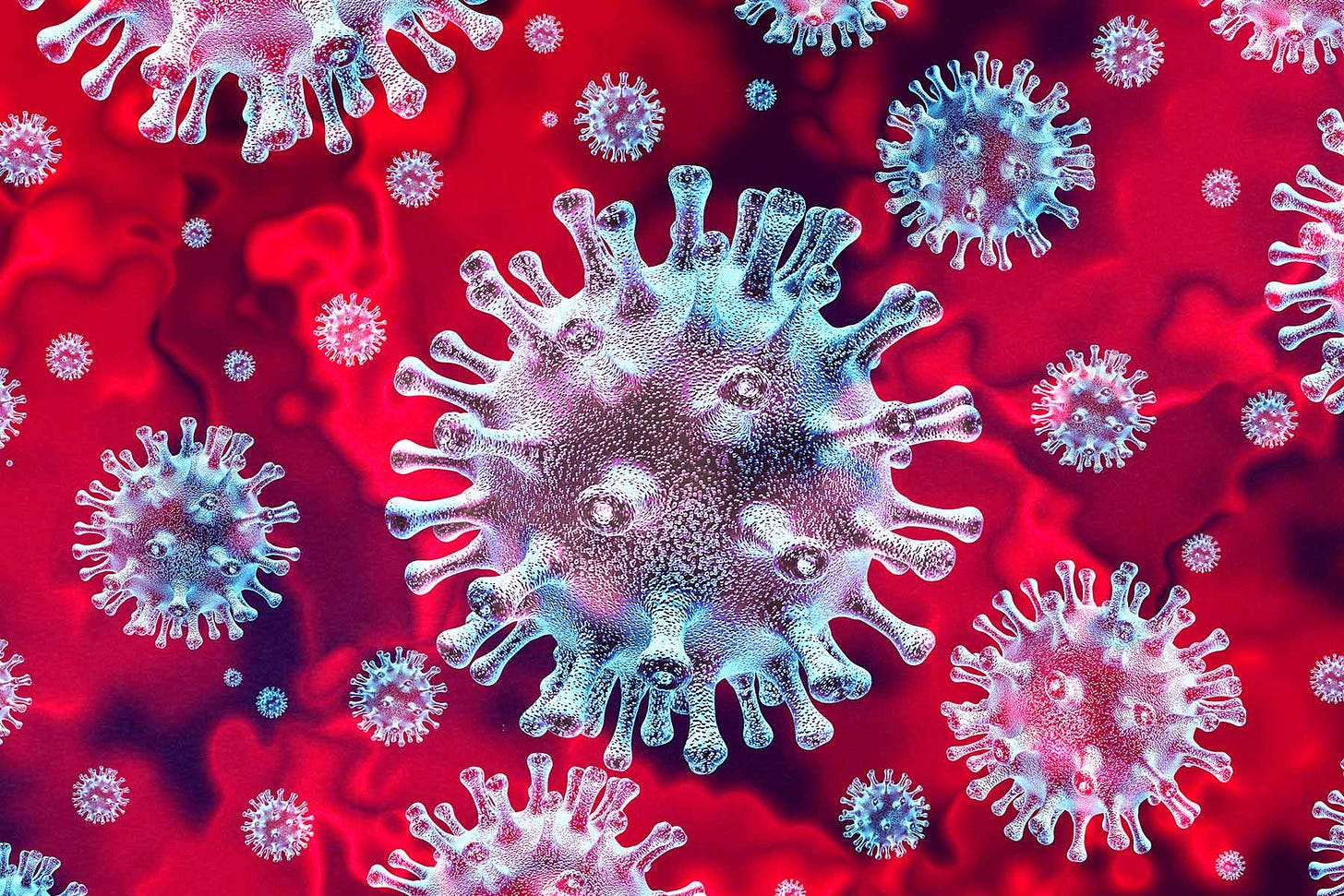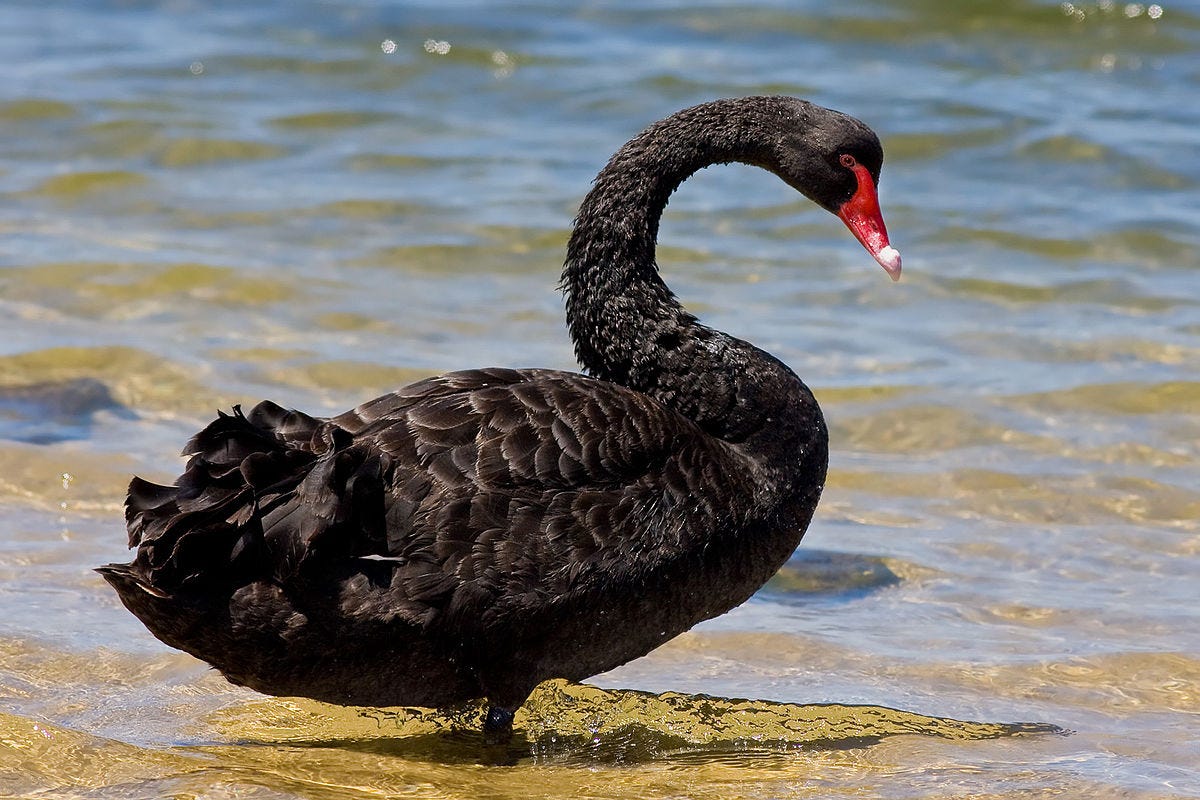The wages of conventional wisdom
Is truth our goal or the label we put on our assumptions?
Jim Geraghty has a piece at National Review Online, The Wuhan Lab-Leak Hypothesis Goes Mainstream, where he reacts to New York Magazine’s The Lab-Leak Hypothesis: For decades, scientists have been hot-wiring viruses in hopes of preventing a pandemic, not causing one. But what if ...?. Geraghty gets to toot his own horn because he's been soberly pointing out the possibility of a lab leak since the spring. Of course, back then he was a "conspiracy theorist" who was attacked and dismissed by serious journalists. Now that it's in New York Magazine, it is harder for fashionable journalists to dismiss those reporting on these ideas as cranks, kooks, and beneath notice.
This highlights the value of outlets like National Review that thrive outside the bubble of the mainstream media echo-chamber. They have no trouble breaking out of the group-think and conformity in which journalists increasingly seem to huddle in the age of viral social media. As an example, Jake Bittle, a self-styled “climate migration” reporter for The New Republic on June 15th, 2020 wrote, Why Conservatives Believe a Chinese Lab Created the Coronavirus: The conspiracy theory sprung from an amateur YouTube video. Then, the National Review picked it up:
As the United States struggled to contain the initial onslaught of the coronavirus pandemic, a few conservatives peddled an outlandish theory to explain the origins of the disease. The virus, they claimed, did not emerge in the Wuhan market where most experts believed it had appeared, but at the Wuhan Institute of Virology, a research laboratory about eight miles away.* In late January, The Washington Times suggested that scientists at the lab had developed the disease as part of China’s biowarfare program. Even after an article in Nature found that the chemical structure of the virus proved it could not be a “laboratory construct,” the theory had no trouble mutating into a new, more durable form: If the virus hadn’t been manufactured, perhaps it had escaped the lab by accident, the product not of biowarfare but of unsanitary Chinese negligence.
The asterisk in the first paragraph leads to this qualification: "This piece has been updated to reflect the Chinese CDC’s belief that the Wuhan market was not the source of the coronavirus, but a super-spreader." Facts, it turns out, are not always fixed.
Some of the theories floating around are clearly outlandish. But the idea of lab escape in the generality really isn't. The consensus is a moving target.
And the consensus has moved on further since then. Why? Partly because of a change in politics, according to the piece in New York Magazine:
Everyone took sides; everyone thought of the new disease as one more episode in an ongoing partisan struggle. Think of Mike Pompeo, that landmass of Cold War truculence; think of Donald Trump himself. They stood at their microphones saying, in a winking, I-know-something-you-don’t-know sort of way, that this disease escaped from a Chinese laboratory. Whatever they were saying must be wrong. It became impermissible, almost taboo, to admit that, of course, SARS-2 could have come from a lab accident. “The administration’s claim that the virus spread from a Wuhan lab has made the notion politically toxic, even among scientists who say it could have happened,” wrote science journalist Mara Hvistendahl in the Intercept.
The COVID-19 pandemic is a feature of 2020 that emerged out of the blue. A protean thing whose arc and trajectory wasn’t predicted. It's ridiculous to talk about rock-hard scientific truths when the science is being discovered, made, and refined, as we speak. In the first month of the pandemic there were many wild theories about the origin of SARS-Cov-2. I didn't pay much attention because I was focused on other things, like the US's complete lack of a coherent response. But at the end of February 2020 a biologist who worked on pathogens mentioned to me offhand that he believed it was a lab escape, and told me many he trusted also suspected this. I didn’t know what to think about this at the time.
By the spring, a range of my friends, academic molecular and evolutionary biologists, were taking an interest in this hypothesis. They didn’t dismiss it out of hand, but neither did they have the bandwidth to go deep. And, it was clear there were going to be political and professional risks for anyone who backed examining this awkward possibility. Did they fancy being the “crazy” scientist pushing marginal ideas some intrepid journalist would spotlight to illustrate the spread of dangerous conspiracy theories? This risk was made concrete when Alina Chan, a biologist at the Broad Institute, endured sustained and personal social media blowback from her colleagues for co-authoring a preprint that suggested SARS-Cov-2 was “pre-adapted for human transmission.” This was airing skepticism of the earlier model of transmission from the wet market in Wuhan, which was pushed by the authorities in China, and accepted without reservation by the Western establishment.
When I wondered whether US authorities were exploring the different possibilities for the origin of SARS-Cov-2, friends in politics point out that the Chinese government has been known to aggressively target people who dare point fingers at them, so that was another major risk that people had to consider. Do you want to be on the Chinese government’s radar? Do you want your colleagues having to decide whether to defend you as not really a kook?
Finally, the Trump administration's aggressive and volatile politicization, arrayed against the cult of "We Believe in Science" made things dicey for anyone who would have preferred to navigate between two certainties, leaving open possibilities and exploring the science with an open mind. Remember all the grandstanding about how masks only gave a dangerously false sense of security, until they were suddenly mandatory and mask-skeptics were contemptible? (It's trivially easy to find “experts” who flipped one from one smug position to the other, but for some reason these individuals are rarely held to account.)
Over the summer of 2020 I didn’t put any time into questions over the source of SARS-Cov-2. My attitude changed in September when the Boston Magazine piece highlighting the theory came out. All of a sudden there was more discussion about the different possible origins, among my friends in science, at least in private (e.g., purely natural jump vs. something that escaped the Wuhan laboratory). There was broad agreement that Chan, a major source for the piece, who had been arguing we needed to keep open the possibility of lab escape, was credible.
When I inquired about the likelihood of alternative origins of SARS-Cov-2, several friends confided that high-profile scientists were privately arguing there needed to be an investigation about the lab-escape theory. The idea was clearly not crazy, even if many virologists were still very skeptical. Nevertheless, these anonymous research-group heads still withheld their credibility from the lab-escape hypothesis by staying silent in public.
In November I did a quick interview with a producer for a Spanish television program. He reached out for comment because so many scientists who off the record, would credit the idea of lab escape wouldn't speak on the record. He related how demoralizing he was finding the difference in how scientists talk off-camera versus what they were willing to say on the record. He had grown much more skeptical of scientific pronouncements in public as a consequence.
I wish I had a more positive spin on this. Much of what you see pronounced with certainty about COVID-19 is likely wrong. SARS-Cov-2 is a new virus, and COVID-19 is a new disease. We don’t have all the details. The experts have a great deal of experience with pathogens and pandemics in general, but there remain limitations to their accrued wisdom in novel situations like this. As a consumer of news and analysis, you have to be personally critical-rational. The consequences of your conclusions, of your actions, are going to impact you, as well as society. Buying fully into the consensus du jour may have more than abstract consequences. Remember washing produce with baking soda? Or the conventional wisdom that droplets, not aerosols were the major vector? No one was lying. But experts were not nearly as certain about the truth as they signaled to the public.
We need to act in the pandemic. But we do not need to pretend that we are certain about all our actions, or that we know the whole truth. Science is a process of incremental convergence upon the truth over time. It’s not tablets of divine revelation to be disseminated to the masses. Humility, not hubris, is essential in this situation. Truth should be our goal, not the label we put on our assumptions.
My podcast with Alina Chan will be out this week for paid subscribers. Two weeks later for everyone else. One thing Alina emphasizes several times is that the truth is what matters, and we need to investigate the truth, even if it's not convenient to a particular narrative. This is admirable, but to be frank I find it to be an exceptionally rare priority in our age.
Cover Image Credit: WebMed





Here’s my main problem with the “lab leak” idea: the Wuhan lab wasn’t a secret black facility, they had international collaborators. So if they had isolated and cultured a new coronavirus that was the ancestor of SARS-Cov-2, and were doing gain of function or host change experiments on it, wouldn’t they have mentioned it to someone outside the lab?
Now you could claim that maybe this particular project was secret, but why would it be, when I believe they had done similar work with international collaborators? It’s not like coronaviruses would have military value - an agent that spreads easily between people and usually causes mild symptoms in people young and fit enough to be soldiers is the opposite of what you’d want.
What would scientists in this field say to this objection?
To me the only “leak” scenario that makes sense is that they brought it back from the bat caves without realising it.
I remember Bret Weinstein talking about this Lab leak Hypothesis on Rogan.